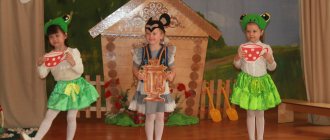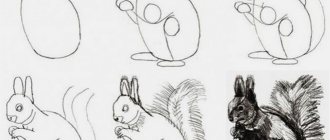The profession of an actor is not only flowers and a sea of fans. If you are thinking about connecting your life with the stage, then be sure to read this review.
Average salary: 30,000 rubles per month
Profession rating
An actor is a performer of roles in film and theater. Master of transformation. This is a person who can easily take on the image of another person, completely absorbing her character and qualities. They bring art to the masses, giving people exciting moments. It is these moments that give the viewer the opportunity to have fun and take a break from everyday work, and the performer - fame and popularity.
The origins of acting took place in Ancient Greece. In ancient times it was a prestigious profession and theater workers were respected. During the Middle Ages, during the dark times and mass religious persecution of the Holy Inquisition, actors were despised.
They were considered a demonic creation, and the theater was recognized as a manifestation of the devil. Buffoons and traveling theaters were thrown with stones and rotten vegetables. During the Renaissance, this art begins its path of restoration. The world of theater gained real popularity only in the 20th century.
It was then that Stanislavsky, who founded the Moscow Art Theater, carried out a revolution of actors. Since then, this profession has been rapidly gaining popularity. Famous actors acquired armies of fans and became recognizable on the streets. Now film and theater stars receive luxurious fees and can afford a luxurious life.
But at the same time, this profession is one of the most psychologically and physically difficult in the world.
Description
Acting is based on the principle of transformation. In theory, there are two types of it:
- External transformation. In accordance with the script and the author's idea, the actor changes his appearance with the help of makeup, clothes, make-up, and masks. This is necessary for visual similarity with the character you are about to transform into. Actors change the way they speak, their gait, and even their habits. He does everything in order to convey to the viewer the features of his hero as much as possible.
- Internal transformation. Mere external resemblance is not enough to convey a character's character. The actor learns to think like his hero. To do this, he gets used to the role, adopting the habits and characteristics of the character. According to the script, he understands the essence of the role and completely transforms himself. Famous actors, for maximum resemblance, live the lives of their characters for several weeks in order to feel their feelings and experiences.
Usually, when preparing to play a role, actors use both types of impersonation, intelligently combining this art with artistry, charisma and precision of movements. It is these skills that allow the viewer to enjoy theatrical performances and new films.
What specialties to study?
- Artist of dramatic theater and cinema.
- Musical theater artist.
- Puppet theater artist.
- Variety and circus artist.
You should be careful when choosing a specialty, because the place of future work depends on it: theater, circus, puppet theater, cinema, opera, etc. But it should be remembered that they all provide basic skills in acting and stage writing, which will allow you to improve or change your qualifications.
Where to study
Almost every major city in our country has higher educational institutions that teach theater arts. The most famous and prestigious are:
- All-Russian State University of Cinematography named after S. A. Gerasimov.
- Higher Theater School (Institute) named after. M.S. Shchepkin at the State Academic Maly Theater of Russia.
- Russian University of Theater Arts - GITIS.
- Theater Institute named after. Boris Shchukin at the State Academic Theater named after. Evgenia Vakhtangova.
- School-studio (institute) named after. Vl. I. Nemirovich-Danchenko at the Moscow Art Theater. A.P. Chekhov.
Having managed to pass the commission and enroll in one of these universities, you get a ticket to a successful acting career. These institutions provide hundreds of opportunities, it is important not to miss them and start your creative path.
What do you have to do at work and specializations?
Every day in an actor's life is quite difficult. It's not just about colorful parties and presentations. These are constant rehearsals and run-throughs. The actor perfects every movement, every line. Everything must be perfect from looks to intonation.
An actor's responsibilities include memorizing and subsequently reproducing large amounts of information. A true professional knows his text, every line perfectly and does not need prompters. An actor must constantly monitor his appearance.
Any appearance in society should be perfect.
The profession of an actor does not have a standardized schedule of weekdays and weekends. It's a 24/7 job. Only at first glance does it seem simple and easy. But when you get into the everyday life of an actor, you immediately understand that everything is not so simple.
Every day an actor creates a character. He completely transforms into his character, conveying its essence to the public. The main task is to provide an emotional appeal to the audience in order to provoke a response from the audience.
Who is this profession suitable for?
Acting is one of the most creative professions. A high level of creativity is one of the fundamental factors. The role performer must be self-confident and artistic. Acting in the theater or cinema requires maximum concentration, transformation, it is important that not a single movement looks irrational or ridiculous. After all, the viewer feels any falseness.
An actor must have excellent long-term memory. After all, you need to know the roles by heart. Diction should be clear and understandable to the viewer. So that every word sounds clear and sonorous, with appropriate intonation.
If you are an active, artistic person who feels confident in front of an audience, then you should try your hand at acting.
Demand
In Moscow or St. Petersburg, things are completely different. These are large cities in which theater life and the film industry are constantly developing and looking for new faces. Here you have every chance to prove yourself in the acting field.
How much do people working in this profession earn?
Acting fees can be outrageously large or small. It all depends on your experience. Beginning artists receive small incomes. The main thing is not to sit still and find ways to use your talent. It is important to have patience and you will definitely achieve success. If not in cinema or theater, then on stage as a presenter for sure. Earnings directly depend on employment.
Is it easy to get a job?
In order to get a job in your specialty, you need to go through a number of castings. The first stage is to submit an application for the role with a video of you reading a passage of poetry or prose. If the director likes the way you were able to convey emotions in an original and subtle way, then they will call you and invite you to an official audition.
During the audition, you will read text from the script. It is important to understand the essence of the character in a short period of time and bring it to life in front of the director. After looking through all the candidates, he will choose the best one.
In order to find a job, it is important to have talent, not just skills from university.
How does one usually build a career?
An actor's career usually begins with not very prestigious jobs. Usually they start with small theaters or work at festivals as artists or hosts. This type of work allows you to gain experience and hone the knowledge and skills acquired during your studies. It is important to learn how to put this into practice.
In order to get a job in more popular places, it is important to constantly attend castings. You will definitely be noticed at one of them.
Prospects for the profession
The profession of an actor in itself is considered a very prestigious craft. Artists who manage to achieve success receive quite large fees and the love of the audience. Prospects include getting leading roles in theaters and films. They give popularity and demand.
An actor can develop. Thus, many actors often become co-producers of films with their participation or retrain as production directors in order to become the creator of a picture, and not its episode.
acquaintance with theatrical professions lesson for the senior group
Lesson notes
"Introduction to theatrical professions"
(senior group)
Program content
. Introduce children to some theatrical professions. Provide the opportunity to try yourself as a director, costume designer, decorator, actor; feel the importance of each profession. Demonstrate the capabilities of makeup when creating various images. Continue teaching children to creatively solve problem situations.
Material and equipment.
Sets of costumes, wigs, “noses”, small attributes, decoration elements, flannelograph, handouts for children, audio recording of Baba Yaga.
Vocabulary work.
Director, actor, costume designer, decorator.
Progress of the lesson.
Educator
(greets guests). Hello, come in, take your seats. Today you came to the theater studio. What is theater? Why do people go to the theater? (children's answers). That's right, theater is a holiday. Most people come to the theater to relax and watch a performance. But for some people, theater is work. Think about who works in the theater? (children's answers).
Let's play: I will be an actress, and you will be the directors. Offer me the roles of fairy-tale characters. (Listens to the children’s answers and chooses the role of Baba Yaga).
Educator
(examining himself). Do I look like Baba Yaga in these clothes? (children's answers). Of course not. You need a special suit. In the theater there must be a person who selects costumes for the actors, a costume designer. (Children repeat this word). Now you are turning from directors into costume designers. Please choose the right suit for me.
Children come to the table with costumes and together decide what clothes and shoes they need to choose for the role of Baba Yaga.
Educator
(puts on a suit). Can I go on stage now? (If the children do not guess, leading questions lead them to the idea that makeup and a wig are needed). Do you want to be make-up artists? First, try to match the makeup to these faces (Children do the task at the tables).
Educator
(speaks in a gentle voice and waltzes). Now I have a costume, wig and makeup. Do I look like Baba Yaga? What are my movements and voice like? (children's answers). Now we will become directors again and you will have to show me how to act in order to be like our heroine. (Children show movements, depict a character’s gait, facial expressions to the music. The teacher consults with the children and chooses the most expressive sentences).
Educator.
I am the spitting image of Baba Yaga. I always live in kindergarten, I walk along the street with the teacher. Or do I live somewhere else? (children's answers). That's right, I live in the forest. How can you depict a forest in the theater? What is needed for this? (after listening to the children’s suggestions, he turns his attention to the decorations). Now we will become decorators and try to depict a forest. (children, using decoration elements, complete the task on a flannelgraph).
Summary of an open lesson in the senior group “Theater Professions”
- Summary of educational activities in the senior group “Theatrical professions”
- Educational field: “Social and communicative development”
- Program content
- Target:
- 1 educational: Continue to introduce children to theater professions; continue to learn to pronounce phrases intonationally and expressively, improve dialogic speech
- . 2 developmental: Develop creative abilities: fantasy, non-standard thinking, imagination, speech activity of children, pantomimic skills and articulation, encourage creative initiative, encourage children to actively communicate
- 3 educational To develop the ability to listen, respect the opinions of peers, and defend one’s point of view.
- Vocabulary work: make-up artist, actor, costume designer, facial expressions, gestures, tongue twisters, tongue twisters.
- Equipment and materials:
- 1.Chest with theatrical supplies
- Motivation:
- The teacher brings a suitcase with costumes and makeup. and lets the children see what is in it.
- Educator : What do you think, children, where can the contents of this suitcase be used?
- Children: (In the theater)
- Educator : Why did you decide that?
- Children: ( Because there are costumes and masks there - all this is used in the theater).
Educator: I agree with you, but what profession do you think people use these things? What professions do you know?
- Children: (costume designer, make-up artist, actor, lighting designer, director).
- Goal setting:
- Educator : That's right, today we will once again remember some theater professions.
- Do you like to read fairy tales?
- Do you want to become an artist?
- Then tell me, friends,
- How can you change yourself?
- To look like a fox?
- A wolf or a goat?
- The prince or Yaga?
- Or the frog in the pond?
- Guys, what do you think can be used to change your appearance?
- Children : You can change your appearance with the help of a costume, makeup, and hairstyle.
- Educator : Make-up artist is a very interesting profession. With the help of makeup (lipstick, multi-colored creams) he can turn, for example, an ordinary girl into a princess, a young man into an old man
Lesson summary on theatrical activities Topic: “Profession actor”
Purpose: To introduce the profession of an actor.
Tasks:
Educational:
- To contribute to the formation of ideas about the profession of an actor.
- Introduce the peculiarities of an actor's professional skills.
Educational:
- Develop the ability to clearly pronounce tongue twister words.
- Develop the ability to emotionally convey the images of the characters in sketches.
- Promote the development of initiative and independence in theatrical performance.
Educational :
- Develop the ability to focus on a partner when achieving common goals.
- Cultivate interest in the work of an actor.
- Nurture creative imagination.
Preliminary work:
Materials: cards with emoticons that convey the mood, a box with finger theater characters, tongue twisters, videos about behind-the-scenes life.
Progress of the lesson:
Children sit on the carpet in a semicircle.
Educator: I see you are in a good mood. I suggest smiling, passing a smile to each other.
Educator: In what cases does a person smile?
Children's answers:
Educator: What profession can a person transform into different heroes?
Children's answers:
Educator: This is an artist or, in other words, an actor! Today we will talk about the profession of an actor. And since this is a profession, then tell me where the actor works?
Children's answers:
Educator: Can a performance take place without actors? Why? Right. Theater cannot exist without actors. These are some of the main people who participate in the play. Each actor, before getting a role, undergoes an audition to show his acting abilities and talents. He reads and then memorizes the text of the role and selects a costume.
I invite you to plunge into the world of theatrical life.
In order to pronounce words correctly and clearly from the stage, you need to be able to breathe correctly. I suggest doing breathing exercises.
Breathing exercises “War cry of the Indians”»
Goal: To develop the ability to regulate the volume of the voice according to the presenter’s signal (quieter-louder).
Educator: “How great and loud you did it! To ensure clarity of pronunciation, actors speak quickly during rehearsals. Let's remember some tongue twisters.
Children remember and pronounce tongue twisters. If not, then the teacher has a few prepared to remind you.
Educator: Let's remember this tongue twister...
Educator: You tried to pronounce all the words clearly and many succeed. We talked about how an actor can easily transform into any character. I suggest playing a game called “Mood.”
Game "Mood"
Target:
Educator: I have cards in my hands that show emoticons showing different moods. (Consider, indicate which emoticon represents which mood)
I show you a picture, and you say the following phrase: “The cockerels have fluffed up, but did not dare to fight,” conveying the mood indicated by the emoticon in the same voice and with the same mood as shown in the picture.
Children take turns pronouncing the phrase, focusing on the emoticon. (You can give emoticons to children.)
Educator: Was it easy to convey the mood? What mood is easy to convey? Which one is difficult? Guys, you did your best and accurately conveyed the mood with your intonation. I suggest you get acquainted with another type of preparation for a role - pantomime. In such performances no one utters words. This is playing a role with just movements, gestures and facial expressions. I propose to show you without words...
«Pantomime sketches"
Target:
- "Naughty puppy."
- "Proud cockerel"
- “Hush” (two mice must cross the road where the kitten is sleeping).
- "Delicious candy."
- "The Fox and the Hare."
The hare is rushing away from the fox.
The tail trembles, the whiskers tremble.
The pine trees got in the way,
You can't escape the chase!
There is no salvation in the forest!
He jumped into the hedgehog's hole.
Educator: Tell me, is it easy or difficult to perform roles without words? Which sketches were easy? Which ones are difficult? What is needed to make the sketch work?
Children's answers:
Educator: Let's summarize. Answer the questions:
— What is the name of the profession of a person working in the theater, circus or cinema?
— How does an actor prepare for a role? (Reads the text, comes up with a costume, rehearses, works on breathing, clarity of pronunciation, facial expressions and movement.)
Let's watch a short excerpt from a film about the profession of an actor (as a result of the conversation).
And now, like real actors, we are ready to take on roles. That's why I have a surprise for you - this is a magic box. What do you think is in it?
Children's answers:
Educator: Who will take it upon themselves to look into the box and pull out a surprise.
Children take out the contents of the box. A teacher and children examine the characters.
Educator: Our box contains characters from the finger theater. Choose the character that you like. (Roles are distributed, children unite, come up with and perform mini-performances and sketches.)
Actor
An actor (from the French acteur, from the Latin actor - performer; feminine - actress) is a professional performer of diverse roles in plays, films, commercials, and video clips. The profession is suitable for those who are interested in world artistic culture (see.
choosing a profession based on interest in school subjects).
The profession of an actor is one of the most ancient. The shamans also staged performances for the entire tribe. As an art, acting originated in Ancient Greece and was considered very prestigious.
However, Medieval Europe considered the acting of actors to be demonic, and in Rus' it was even dangerous to be an actor. The Church persecuted actors, jesters, and buffoons. Church officials could destroy musical instruments, and performers could be beaten or imprisoned.
It was only during the Renaissance that attitudes towards acting changed.
The art of acting is constantly evolving. Until the beginning of the 20th century, stereotypes and one-dimensionality of characters and types prevailed in the acting. The revolution in the acting profession was carried out by the founder of the Moscow Art Theater K.S. Stanislavsky (1863 – 1938).
He is the creator of the famous acting system, the so-called Stanislavsky System, the purpose of which is to achieve maximum psychological authenticity in the acting of actors. Stanislavsky encouraged actors to feel what the hero feels, to experience genuine experiences in order to convey reliable emotions on stage.
For more than a hundred years, the famous acting system of Stanislavsky has been extremely popular in Russia and all over the world, and the phrase he expressed “I don’t believe it!” became winged.
Many are attracted by fame, wealth and an interesting life. However, few people understand how thorny the path to achieving their goal is, and no one can guarantee that you will succeed in this field.
There are so many graduates of theater universities, and only a small percentage of them become famous and highly paid actors. Young actors have to make a place for themselves in the sun, gradually earning fame.
There are, of course, lucky ones who were noticed and became famous overnight. For them, what they studied for and strived for will gradually begin to come true.
The basis of acting is the principle of transformation. This transformation can be external or internal. In the first case, the actor uses makeup, costumes, masks, develops intonation, facial expressions, and gestures.
In the second case, the actor needs to reveal the spiritual world of his hero, show his character, convey thoughts and experiences. An actor, regardless of his place of work, creates a certain artistic image and brings something of his own to the character, portraying him in his own way.
The main goal of any actor is the desire to influence the audience, to evoke in them a response, emotions, and feelings.
Required professional knowledge and skills
- artistry, ability to transform, get into character;
- knowledge of genre and role specifics;
- the ability to create an image from a verbal description;
- knowledge of psychology (in terms of facial expressions, speech characteristics, etc.);
- lack of fear of the stage, camera lens, audience;
- availability of musical and choreographic skills;
- impeccable articulation;
- literary abilities;
- creativity, sense of harmony, sense of rhythm, developed aesthetic and artistic taste;
- possession of stage presence (expressiveness, the ability to communicate naturally with partners on stage, the ability to attract the audience);
- the desire for continuous professional improvement.
Personal qualities
- good memory;
- observation;
- diligence, efficiency;
- physical endurance, patience;
- ability and desire to work in a team;
- creativity;
- responsibility;
- abstract thinking;
- oratorical skills;
- determination;
- self confidence;
- endurance to emotional stress;
- energy.
Profession actor
Articles >> Professions >> Profession actor
Description of the actor's profession
Actors are performers of dramatic, comedic and other roles in theater, cinema and various videos. The profession of an actor can be considered one of the most ancient and respected.
This art originated in Ancient Greece. But if here it was prestigious to be a person skilled in acting, then in Rus' and other countries such people were not very respected.
Such a negative attitude changed only with the advent of the Renaissance.
The peculiarity of the acting profession is that there have always been, are and will be many people who want to master this profession, dreaming of fame and big money.
In order to have an exciting, interesting and full of joyful life, young people graduate from theater universities. But only a few become famous.
And since the salary of an actor who has not achieved much success in this field is not at all high, many graduates will be disappointed.
The demand for the acting profession depends on various circumstances, including the creative abilities of Melpomene’s servants and the ability to realize them. We sometimes don’t even notice how big a role masters of transformation play in the cultural life of each of us.
At first glance, it may seem that this specialty does not require any special skills. But this is far from true. To create a certain artistic image, a film actor needs to try very hard.
With the help of intonation, facial expressions, movements, gestures and even the timbre of his voice, he works hard to convey to the viewer not only the content of any work, but also its entire depth.
Makeup, costumes, and sometimes masks also play a big role here.
On this side of the screen, no one is interested in what health or personal problems the actor may have. Through his skill, he must reliably convey the artistic images of the characters, all their emotions and feelings, regardless of his own.
Not all representatives of the acting profession manage to get a good role. Often you have to wait a very long time for an interesting and worthy offer to arrive, sometimes even your whole life. Therefore, quite a few graduates of theater schools happily agree when they are offered to play in a soap opera.
Being an actor in a TV series may not be as prestigious as getting one of the main roles in a box-office film. But there is an opportunity to earn a living and have a fairly stable job for at least some time.
Moreover, these days, many TV series are becoming so popular that the actors who played the main roles in them receive not only good fees, but also recognition and popularity among the audience.
Based on the above, it becomes obvious that the profession of an actor has its disadvantages, along with its advantages. You can become famous throughout the country by starring in one film. For some this is probably a plus, but for others it is a minus.
Tours and trips to various countries are a pleasant addition to fame and popular recognition. But there is always a real possibility that all your life you will have to play only episodic roles that will not satisfy or glorify a single actor.
And the absence of any proposals from directors can drag on for months or even years.
Personal qualities of an actor
Of course, in order to succeed in the profession of an actor, it is necessary not only to have an excellent memory for memorizing texts, but also to have increased efficiency and hard work.
People with an original, bright personality and the ability to improvise should probably try their hand at the art of impersonation.
And those who are not persistent and patient, who do not know how to convey emotions expressively and sensually, should not waste their time and energy in vain.
Those who want to become actors in films, TV series or play in the theater, in addition to acting abilities, should have a rich imagination, well-spoken speech, a high level of concentration and the ability to quickly switch attention when necessary.
Due to the fact that the acting profession is quite emotional, when choosing this specialty, it is very important to be mentally balanced.
There is also a category of people who are simply afraid of cameras, stages and spotlights; naturally, they have no place in this profession.
It is very important for people in this profession to be able to communicate, that is, to be sociable. To avoid unnecessary problems, you should be friendly in order to work well in a team. It is much easier for open and good-natured people to find not only a common language with colleagues, but also contact with the audience.
Those who are relaxed, know how to dance and move beautifully, and not only have a beautiful voice, but also control it, can try their hand at this art if they wish.
Education: what do you need to know?
You can become a good actor only if you have innate talent. And theater institutes, colleges, universities and academies will help develop existing abilities. You can also hone your skills in studio schools and acting courses.
Knowledge of Russian and foreign literature will greatly facilitate learning this profession. Knowledge of psychology will help not only to establish friendly relations in a team, but also to quickly and easily get used to various images. A good ear for music and choreographic skills will give you more opportunities to get a lucrative offer from directors.
Summary of a lesson on cognitive development “Profession – artist”
Summary of a lesson on cognitive development “Profession – artist”
in the preparatory group
MDOU kindergarten No. 92 “Ivushka”, Vologda
Shutova Tatyana Ivanovna
teacher
Summary of a lesson on cognitive development “Profession – artist”
Tasks:
Educational
:
— Contribute to the formation of ideas about the profession of an actor;
— Introduce the peculiarities of an actor’s professional skills.
Educational:
— Develop the ability to clearly pronounce tongue twister words;
— Develop the ability to emotionally convey the images of the characters in sketches;
— Promote the development of initiative and independence in theatrical performance.
Educational
e:
— Cultivate interest in the work of an actor;
- Nurture creative imagination.
Progress of the lesson:
— Educator:
A package arrived today. Do you want to see what's in it?
(wig, theatrical dolls, glasses, etc.)
Educator:
Who might these things belong to? A person of what profession can transform into different heroes?
Children's answers:
Educator:
This is an artist or, in other words, an actor! Today we will talk about the profession of an actor. And since this is a profession, then tell me where the actor works?
Children's answers:
Educator:
Can a performance take place without actors? Why? Right. Theater cannot exist without actors. These are some of the main people who participate in the play.
Tell me, is the work of an actor easy or difficult? Why do you think so? What should an actor be able to do?
Each actor, before getting a role, undergoes an audition to show his acting abilities and talents. He reads and then memorizes the text of the role and selects a costume.
I invite you to plunge into the world of theatrical life.
Letter: “Hello guys. We are residents of the country of Theater and we know that even children can be actors. We invite you to visit our country so that you can learn acting. We have prepared tasks for you and if you can complete them, a gift awaits you. Come, we are waiting for you"
Educator:
:Do you guys want to become actors?
Then close your eyes, say the magic words and let's go to the land of Theater. One, two, three, get to the country of Theater.
Exercise 1.
Educator:
Remember
what
you can use to convey the character of the hero.
Children: (Intonation
)
Educator
: I agree with you, you can also change the intonation (raising or lowering your voice) to convey the character of the hero. Let's try to do this, say the word “Hare” with different intonations, “fun”, “evil”, “surprisingly”, “offended”, “in fear”, “thoughtfully”.
Task 2
Educator:
Great, guys, everything is working out for you. Now let's communicate using gestures. I say the word, and in response I expect gestures from you.





